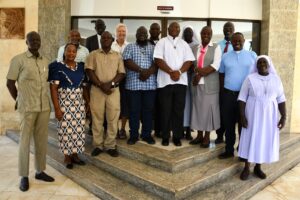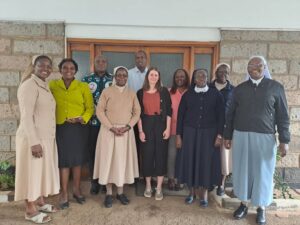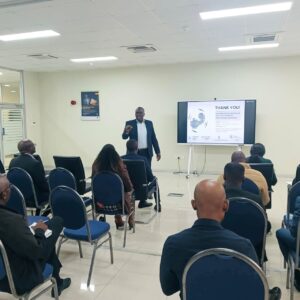AMECEA: Post-Synodal Assembly, AMECEA Secretary-General Emphasizes Synodal Conversion
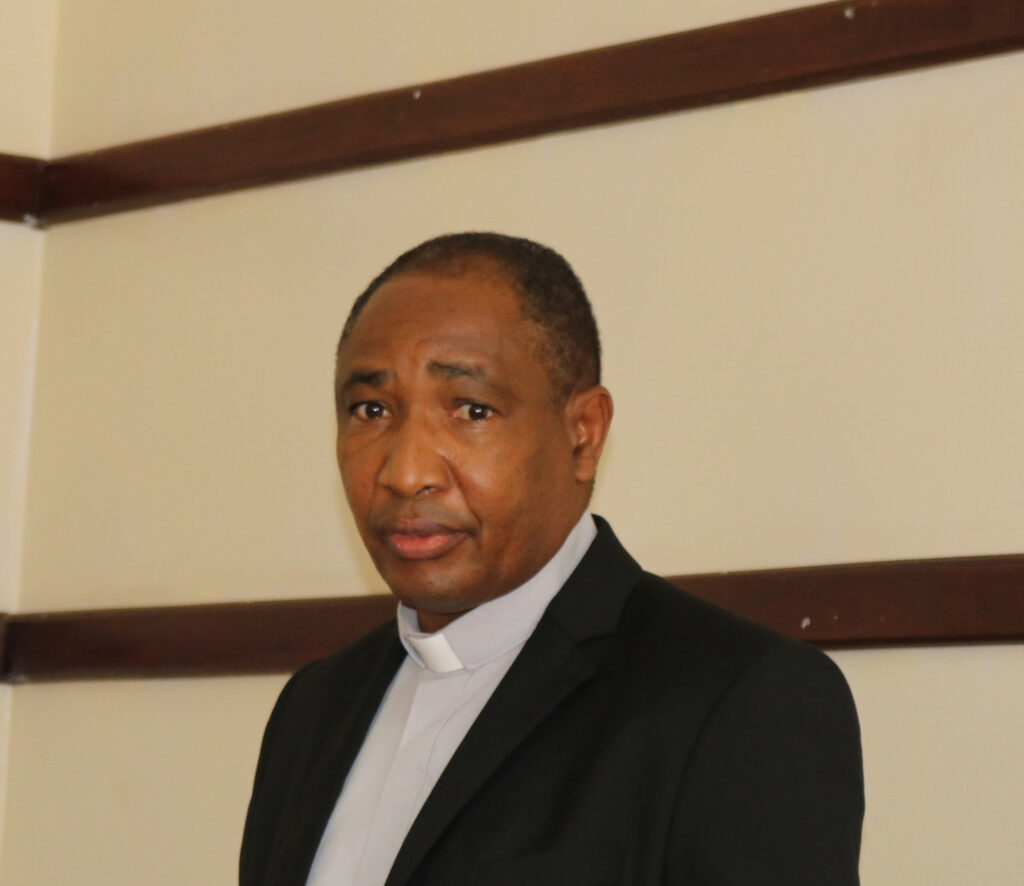
Fr. Anthony, Secretary General AMECEA
Sr. Jecinter Antoinette Okoth, FSSA
As a way forward for the Catholic Church after a three-year synodal journey that has reflected on embracing the diverse voices of various groups in the Church, the Secretary-General for the Association of Member Episcopal Conferences in Eastern Africa (AMECEA) has stressed some key highlights from the assembly on way forward that will enable the Church to be more inclusive, compassionate, and mission-driven.
About two days after he arrived from the month-long synodal assembly that took place from 2-27 October in Rome, Fr. Anthony Makunde who was a delegate for the XVI Ordinary General Assembly of the Synod of Bishops pointed out some key issues from the Final Document to strengthen synodality within the AMECEA region and the entire Church.
In his address to members of the AMECEA secretariat on Thursday, October 31, Fr. Makunde who was one of the experts during the assembly, tasked with the responsibility to facilitate the synodal journey, highlighted the need for formation on synodality at all levels starting from the family.
Families are the primary environment where individuals first encounter values such as respect, compassion, and listening, the key principles of synodality. Thus, when families embrace the spirit of “walking together,” they strengthen the broader Church and society, creating a more inclusive and mission-driven community.
Fr. Makunde shared further that even though the issue of women’s role in the Church has been a concern throughout the synodal journey, and is also one of the areas for in-depth study, “The synod has expanded women’s access to leadership roles.” At the same time, it is recommended that more women be “Included in seminaries and common formation with the laity.”
Additionally, the assembly which comprised over 360 delegates from across the globe, acknowledged that Small Christian Communities (SCCs) are “the ideal models of living synodality.”
Other areas highlighted by the AMECEA Secretary General who attended both the first and the second phase of the synod on synodality include, “increased collaboration of the laity in the governance of the church, exploring a new ministry of listening and accompaniment for the laypersons, and emphasis of the Sacrament of Baptism as the root of a variety of charism, vocation, and ministries.”
Way Forward for the AMECEA Region
Following Pope Francis’ stand that post-synodal apostolic exhortation will not be written as is normally the tradition after a synodal assembly instead the final document which was voted upon by the delegates was adopted to “serve as a guide” to the journey of being a Synodal Church in Mission Fr. Makunde proposed that AMECEA Secretariat in collaboration with the National Secretariats in the region need to disseminate the synod final document to the Family of God in the region and find possible ways of initiating trainings on the same.
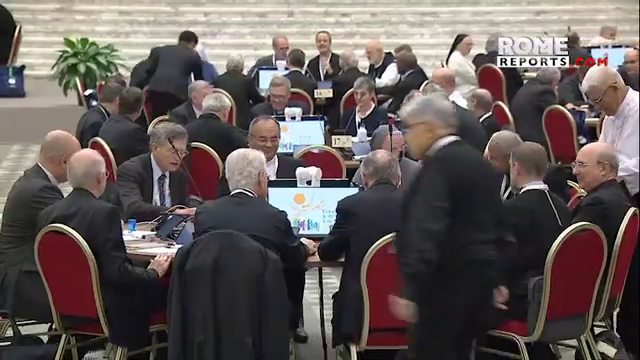 He recommended translations of the text into local and national languages so the message could be understood by all in the region and at the same time, member conferences to take synodality as a cross-cutting item in all the pastoral programs.
He recommended translations of the text into local and national languages so the message could be understood by all in the region and at the same time, member conferences to take synodality as a cross-cutting item in all the pastoral programs.
According to Fr. Makunde the subject of synod on synodality needs to be introduced in the houses of formation for clergy, religious, and catechists and the region should see ways of fostering the synod method of conversation in the spirit in the ecclesial model of SCCs.
“The AMECEA region should enhance the role of the laity in building up a synodal church in mission and also explore ways of engaging the clergy in the synodal journey through the national and diocesan association of the clergy,” he concluded adding that “initiating schools of synodality in various forms is another possibility as a way forward as well as enhancing the existing collaboration of the Bishops and Religious superiors.”
